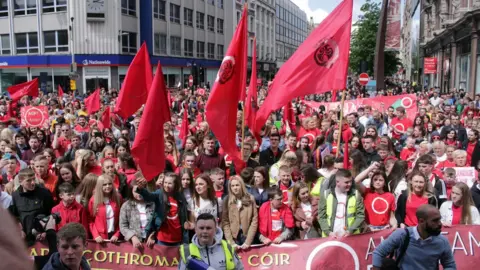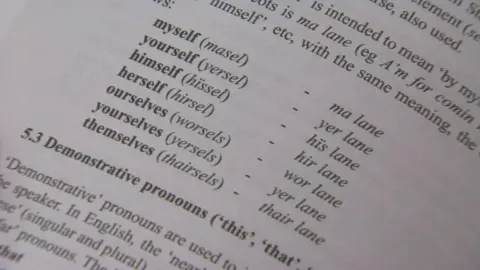Executive launches Irish and Ulster-Scots translation 'hub'
 Pacemaker
PacemakerAn Irish and Ulster-Scots language translation service for Northern Ireland Executive departments and public bodies has begun operation.
The translation "hub" was one of the commitments on languages in the New Decade, New Approach (NDNA) agreement.
It committed the executive to provide language translation services for its nine departments, "arm's-length bodies, local government and public bodies".
The deal also promised Irish language and Ulster-Scots commissioners.
However, neither of those commissioners has yet been appointed.
Some Irish language speakers have previously expressed concerns over the role and remit of the commissioner for Irish.

Set up by the Department for Communities (DfC), the hub will provide written translations for public bodies - including medical, health or legal documents - and proofreading.
The department said that all Irish language translators would hold "a current Séala an Aistriúchán or Séal d'Eagarathóirí, Foras Na Gaeilge's accreditation for translators and editors" or a postgraduate degree in Irish translation.
"All Ulster-Scots translators used by the hub have significant experience translating documents into Ulster-Scots," DfC said.
The Irish language organisation Conradh na Gaeilge welcomed the services provided by the hub but criticised the fact that other language commitments in NDNA had not yet been enacted.
They recently told a cross-border committee on the implementation of the Good Friday Agreement that Irish language speakers were being treated with "total disrespect" over Stormont's failure to introduce an Irish language act.
